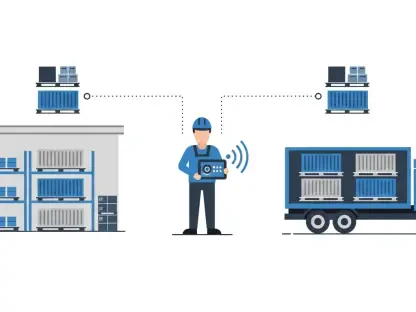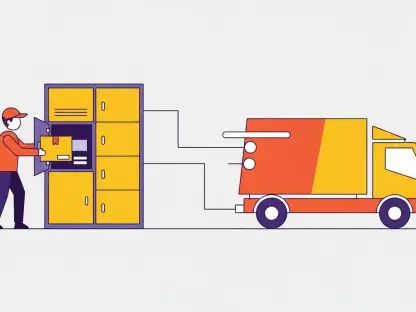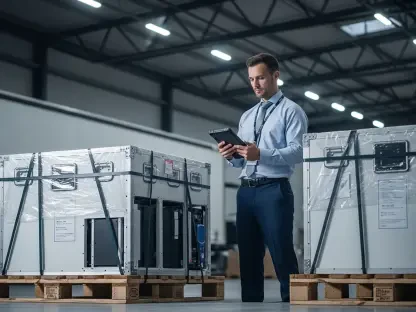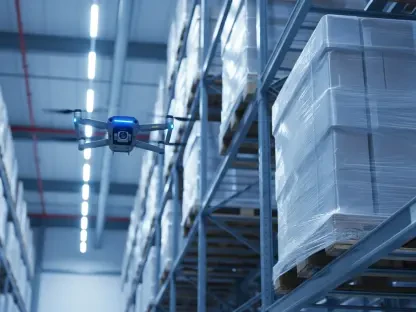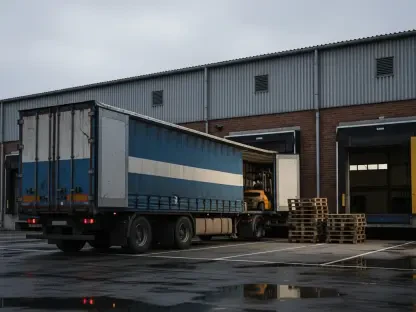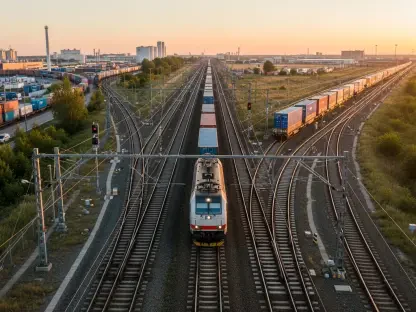Volvo Trucks and DSV, a major global logistics company, have embarked on a transformative partnership aimed at revolutionizing the logistics industry with a significant focus on sustainability. The agreement involves an ambitious delivery of 800 trucks, including 300 zero-emission electric vehicles and 500 highly fuel-efficient diesel and gas-driven trucks. This bold initiative is expected to become a pivotal game-changer in reducing emissions in Europe, setting a new industry standard and capturing broad attention within the sector.
Major Partnership Between Volvo and DSV
The collaboration between Volvo Trucks and DSV is far more than a mere vendor-client relationship; it marks a strategic milestone for both organizations, symbolizing a concerted effort toward greener logistics solutions. This substantial deal involves DSV integrating 300 Volvo FH Aero Electric trucks into their fleet, leveraging cutting-edge aerodynamics to boost energy efficiency. In addition to electric trucks, 500 trucks featuring advanced, highly fuel-efficient diesel and gas drivelines are also part of the agreement.
The scale of this order underscores not just the logistical and operational commitment but also the mutual trust and forward-thinking vision shared by Volvo and DSV. By opting for a combination of electric and fuel-efficient trucks, the partnership exemplifies a balanced, pragmatic approach to immediate and long-term sustainability goals. This large-scale purchase signifies not only a tangible commitment to reducing carbon footprints but also an alignment in the strategic objectives of both companies to lead the industry toward more sustainable practices.
Commitment to Sustainability in Logistics
DSV’s unwavering commitment to sustainability is a primary driving force behind this transformative partnership with Volvo Trucks. The substantial order of electric vehicles aligns closely with DSV’s long-term goal of operating 2,000 electric trucks by 2030, signifying a monumental step towards achieving zero-emission logistics operations. This ambitious target is not just an internal benchmark but also sets an inspiring example for the entire logistics industry, pushing the boundaries of what is achievable through sheer determination and innovative technology.
The sustainability drive doesn’t stop at acquiring electric trucks; DSV has also devised a strategic plan to maximize the efficacy of their new fleet. By utilizing existing charging infrastructure in Sweden and Denmark, augmented with solar panels, DSV aims to create a robust, environmentally-friendly energy ecosystem supporting their electric vehicles. This holistic strategy highlights not only their commitment to sustainability but also their readiness to embrace new technologies and innovative solutions to make the transition from traditional fuels to greener alternatives both environmentally and operationally viable.
Strategic Significance of the Deal
In the broader context of the logistics and transportation sector, this agreement between Volvo and DSV stands out as a benchmark for the industry’s shift towards sustainable practices. This deal not only represents a significant investment but also embodies a resolute shift towards an eco-friendly future. DSV’s prior experience with Volvo’s electric trucks provides a solid foundation, affirming that the durability and feasibility of electric trucks have already been proven in real-world operational settings.
With the logistics industry under increasing scrutiny to reduce carbon emissions, partnerships like the one between Volvo and DSV are vital in setting a critical precedent. By adopting electric and highly fuel-efficient trucks, companies like DSV are able to fulfill stricter environmental regulations, thus addressing global calls for lower emissions. The Volvo-DSV agreement serves as a clear signal that the logistics industry is ready to embrace sustainable practices, driving forward the agenda for greener and more efficient transportation solutions.
Statements from Leadership
Roger Alm, the president of Volvo Trucks, has emphasized the critical importance of collaboration and a strong commitment to achieving substantial reductions in CO2 emissions through sustainable transport solutions. Alm’s statements resonate broadly within the logistics community, encapsulating the necessity of mutual trust and coordinated efforts between truck manufacturers and logistics companies to drive meaningful environmental change.
Furthermore, Alm’s remarks highlight the viability and practicality of zero-emissions technologies for contemporary logistics needs. His assertions reinforce the efficiency and real-world applicability of electric trucks, addressing any lingering doubts about the feasibility of integrating such advanced technologies into everyday operations. This ongoing dialogue from leadership not only boosts confidence in these green initiatives but also serves to encourage other industry stakeholders to consider similar sustainable approaches.
Infrastructure and Implementation
One of the critical elements enabling DSV’s successful deployment of these electric trucks is their already established and robust infrastructure, particularly in Sweden and Denmark. The strategic incorporation of solar-powered charging stations is a key facilitator in this transition, showcasing innovative approaches to sustainably powering large electric fleets. This infrastructure presents a clear vision of the kind of advanced ecosystem necessary to support a significant shift towards electric vehicles in the logistics sector.
DSV’s previous experience with operating electric trucks places the company in an advantageous position, creating a smoother path for the integration of additional electric vehicles. This familiarity with electric truck technology is likely to streamline the rollout, ensuring minimal operational disruptions while maximizing the benefits associated with vehicle electrification. The groundwork laid by DSV in the electric truck domain provides them with a competitive edge, making their sustainability goals more achievable and setting a model for others in the industry to follow.
Broader Industry Trends
The logistics industry is witnessing a steady movement towards the adoption of sustainable transportation solutions, driven by increasingly rigorous environmental regulations and a growing corporate emphasis on environmental responsibility. This shift is distinctively clear in the growing acceptance and incorporation of electric and fuel-efficient trucks across the sector. Companies are recognizing the intrinsic value of these technologies—not just in reducing carbon footprints but also in achieving long-term cost savings through improved fuel efficiency.
The Volvo-DSV partnership serves as a prominent example of how forward-thinking collaborations can spur transformative change, providing a roadmap for other stakeholders within the logistics sector. The move towards electrification and higher fuel efficiency exemplifies a broader industry trend that prioritizes environmental stewardship without compromising on operational efficacy. It is this balanced approach that holds the promise of truly transforming the logistics landscape, creating a more sustainable and efficient future.
Impact on Future Logistics
Volvo Trucks has entered a transformative partnership with DSV, a leading global logistics company, to revolutionize the logistics industry with a major focus on sustainability. The collaboration involves the ambitious delivery of 800 trucks, comprising 300 zero-emission electric vehicles and 500 highly fuel-efficient diesel and gas-powered trucks. This bold initiative is not just a step forward for both companies but is also expected to be a pivotal game-changer in reducing emissions across Europe. By setting new industry standards, this venture aims to capture widespread attention within the sector and inspire similar eco-friendly practices among other logistics firms. The inclusion of electric vehicles and advanced fuel-efficient models underscores the commitment of both Volvo Trucks and DSV to sustainable innovation. This landmark deal marks a significant stride towards a greener future, aligning with global efforts to combat climate change and reduce carbon footprints. This partnership is poised to not only enhance operational efficiency but also set a precedent for environmentally responsible logistics practices.


